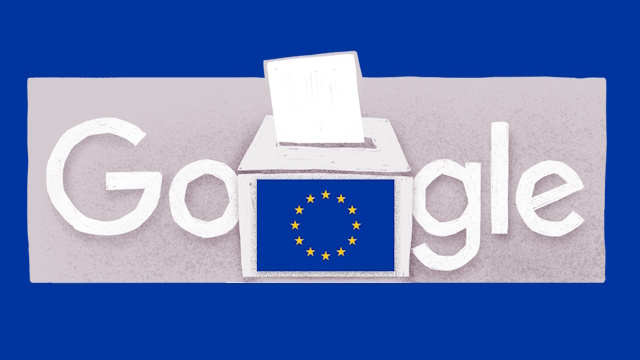A week after Meta turned it down, Google agrees to sign EU's AI Code of Practice while still raising its own concerns
"We will join several other companies, including U.S. model providers, in signing the European Union’s General Purpose AI Code of Practice. "

You can't go two steps in the tech space without hearing something about AI. Be it good or bad, AI has a complete stranglehold on the industry with its new and confusing power.
To help mitigate some of this confusion, the EU has gathered independant experts together and penned The General-Purpose AI Code of Practice, a document that outlines rules and guides for the industry in complying with the AI Act's obligations. The code is tool made available to all to use voluntarily, and Google has just signed on despite Meta turning its nose at the document.
Yesterday Google announced its agreement to adhere to the EU AI Code of Practice in a blog post, which reads "We will join several other companies, including U.S. model providers, in signing the European Union’s General Purpose AI Code of Practice. We do so with the hope that this Code, as applied, will promote European citizens’ and businesses’ access to secure, first-rate AI tools as they become available. Prompt and widespread deployment is important."
The code itself is currently a living document, and is to be assessed and refined. Google's statement makes the case it believes in what the EU is trying to achieve with the code, and of course underlines the profits it believes AI can deliver. It also outlined concerns it has with the document around copyright law and other things that might slow the development of generative AI.
"we remain concerned that the AI Act and Code risk slowing Europe’s development and deployment of AI. In particular, departures from EU copyright law, steps that slow approvals, or requirements that expose trade secrets could chill European model development and deployment, harming Europe’s competitiveness." Reads the statement.
These concerns are similar to those highlighted by Meta boss, Joel Kaplan earlier this week on Linkedin. In the post Kaplan declares Meta won't be signing the GPAI due to legal issues he believes are unresolved in the document.
"Europe is heading down the wrong path on AI." Says Kaplan "We have carefully reviewed the European Commission’s Code of Practice for general-purpose AI (GPAI) models and Meta won’t be signing it. This Code introduces a number of legal uncertainties for model developers, as well as measures which go far beyond the scope of the AI Act."
Keep up to date with the most important stories and the best deals, as picked by the PC Gamer team.
It's worth noting, even a US federal judge has been confused about Meta's warped understanding when it comes to things like copyright and fair use.
But why wouldn't companies want to sign this new code? Looking at it, The GPAI has three main chapters: Transparency, Copyright, and Safety and Security. I think those first two might be what's turning them off.
Transparency gives tips and forms on how to document AI development and work, which a lot of companies have been hesitant to do. Legal issues around the data a generative AI was trained on are one of the more confusing areas of AI with many battles developing over ownership of work.
The EU is also famously more friendly to individual ownership rights than many other lawmakers, especially when it comes to AI. This is something many feel we need, especially around things like false information spready by AI. A lot of businesses with profits in their eyes dislike as it slows down their progress worrying about silly things like credit or justice. With many AIs being trained on content they don't own, many aren't keen to be open about their sources.
Copyright ties directly into this, and is all about helping AIs comply with European copyright law. Again, this is an area that a lot of generative AI models probably are concerned about, because it likely means they may not own the content they are generating. Especially if it's trained on stolen content to begin with.
Safety and Security is more about minimising risks, so I don't see it being as contentious as the other two chapters in encouraging businesses to sign on. It's still a worthwhile member though, as the risks against systems with AI are ever growing.
It seems like Copyright and Transparency are likely to be the places turning companies like Meta away from the EU's new code. These are incredibly important when it comes to terms of ownership, which again, is likely to upset a lot of these models. Sure there are other rules and restrictions here that a company might take issue with, but not wanting to show your work is always a huge problem, and often points to the work not being yours at all.

1. Best overall:
Xbox Wireless Controller
2. Best budget:
GameSir Nova Lite
3. Best premium:
Xbox Elite Series 2
4. Best customizable:
Scuf Instinct Pro
5. Best haptics:
Sony DualSense
6. Best Hall effect:
Razer Wolverine V3 Pro

Hope’s been writing about games for about a decade, starting out way back when on the Australian Nintendo fan site Vooks.net. Since then, she’s talked far too much about games and tech for publications such as Techlife, Byteside, IGN, and GameSpot. Of course there’s also here at PC Gamer, where she gets to indulge her inner hardware nerd with news and reviews. You can usually find Hope fawning over some art, tech, or likely a wonderful combination of them both and where relevant she’ll share them with you here. When she’s not writing about the amazing creations of others, she’s working on what she hopes will one day be her own. You can find her fictional chill out ambient far future sci-fi radio show/album/listening experience podcast right here.
No, she’s not kidding.
You must confirm your public display name before commenting
Please logout and then login again, you will then be prompted to enter your display name.

